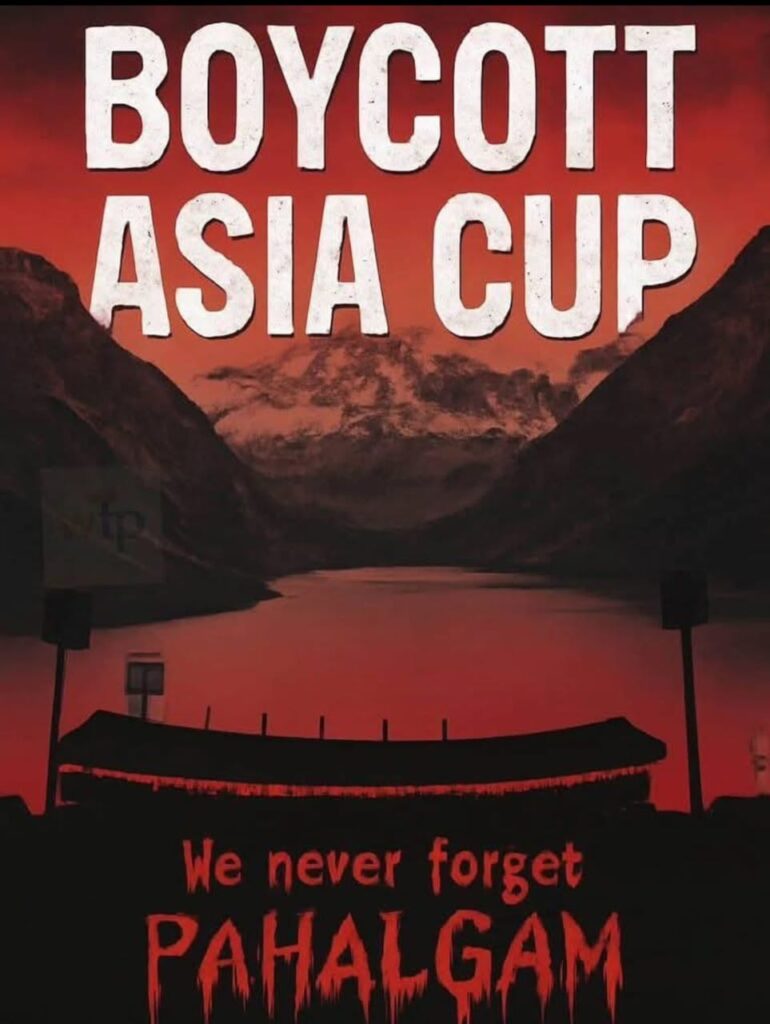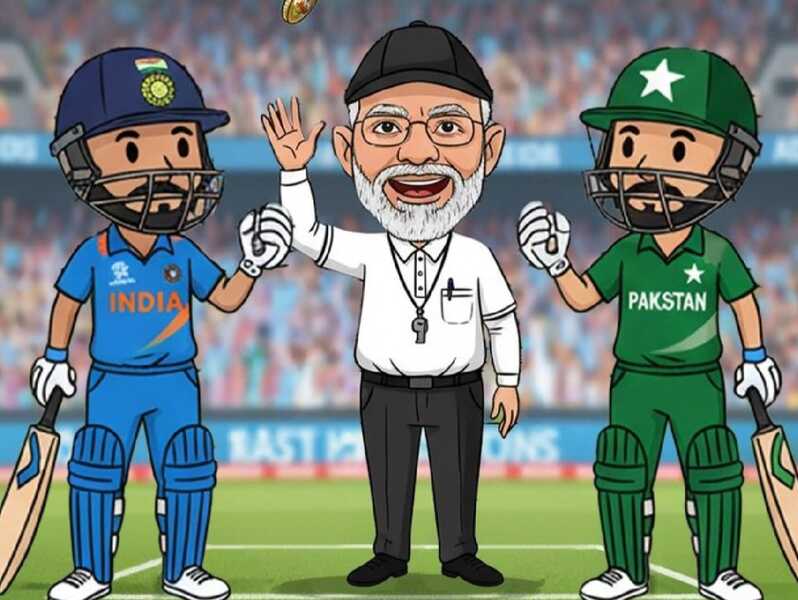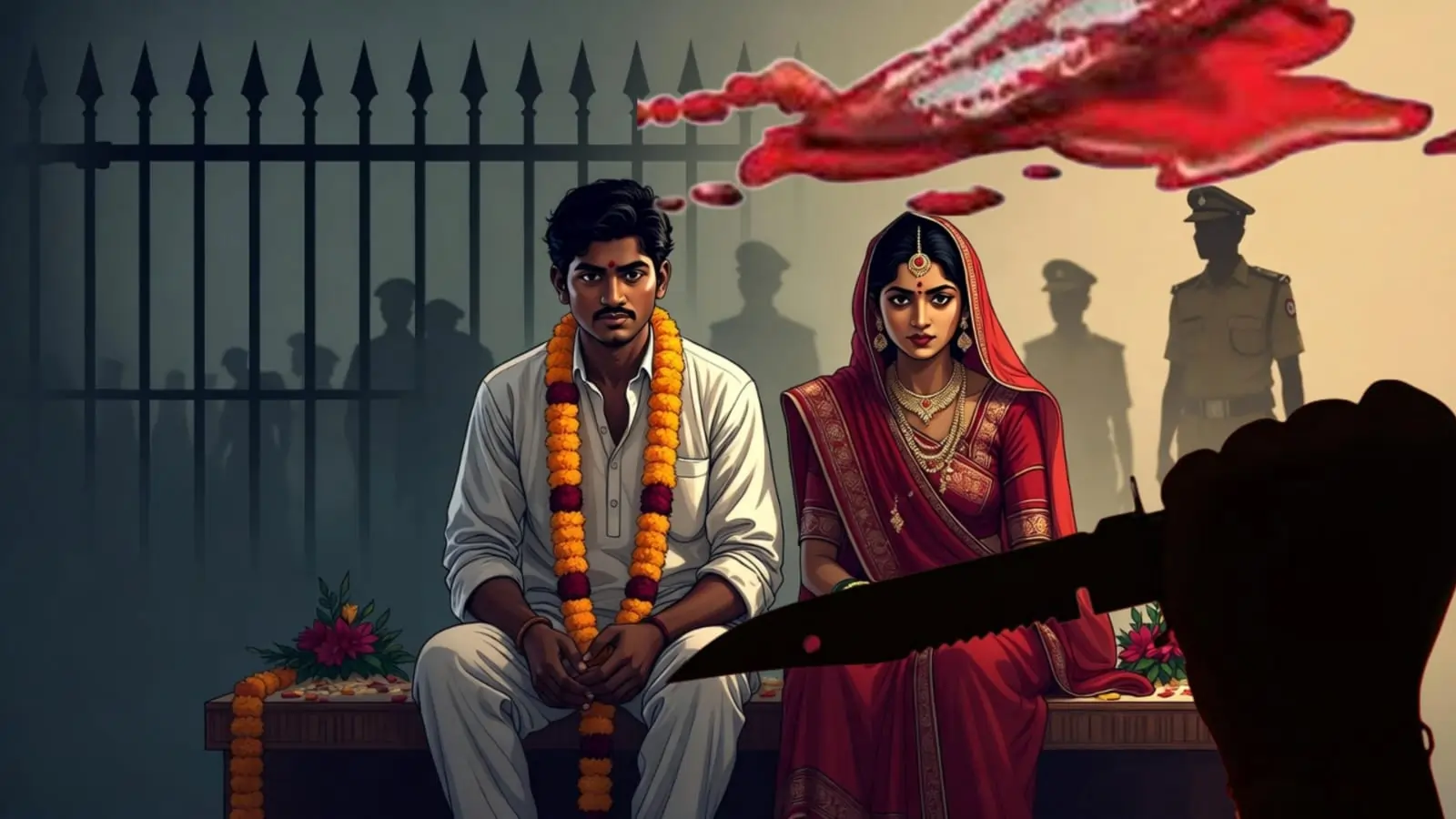- Shock After Pahalgam Attack
- Public Anger Grows as Government Permits Cricket ties with Pakistan
Article Today, Hyderabad:
The terror attack in Pahalgam on April 2, which claimed the lives of 26 Indian tourists, has left the country in grief. Families of victims and citizens across states are still struggling to come to terms with the tragedy. Against this backdrop, the Union government’s decision to allow cricket matches with Pakistan has triggered widespread anger.

Public Anger Intensifies
Political leaders, victims’ families, and ordinary citizens have expressed sharp criticism. Many believe playing cricket with Pakistan at this moment dishonours the memory of those killed in the attack. Demonstrations erupted in several cities as people demanded that sporting ties be suspended until Pakistan stops supporting terrorism.
Government’s Defence
Union Ministers Manohar Lal Khattar and Anurag Thakur argued that India cannot withdraw from international tournaments without losing crucial points. They maintained that bilateral series with Pakistan remain suspended, and only multi-nation tournaments are permitted. According to them, denying participation would undermine the efforts of Indian players. However, these explanations have failed to calm public emotions.
Voices of the Bereaved
Families of victims, including Aishanya Dwivedi who lost her husband in the Pahalgam attack, urged the government not to allow any sporting contact with Pakistan. Political leaders such as Aditya Thackeray warned television channels against broadcasting the matches. On social media, hashtags calling for a boycott of the India–Pakistan game trended widely.
Protests in the Capital
In New Delhi, members of the Aam Aadmi Party women’s wing staged demonstrations, smashing television sets in protest. Several civil society groups described the cricket fixture as an indirect endorsement of Pakistan’s policies. They questioned how India could face Pakistan on the field while battling its terrorism at home.
Opposition Criticism
Senior BJP leader Subramanian Swamy openly criticised Prime Minister Narendra Modi for permitting the match. He described Pakistan as a “butcher’s state” and asked how the government could overlook the sacrifices of Indian soldiers. Mr. Swamy questioned whether the Prime Minister had shown enough empathy towards the nation’s grief.
A Nation Divided
While the government insists on keeping politics and sports separate, critics argue that the issue transcends points and tournaments. For many, it is about national honour and respect for the sacrifices of victims. The debate continues as the India–Pakistan cricket match, instead of uniting fans, has become a flashpoint of emotional and political discord.



